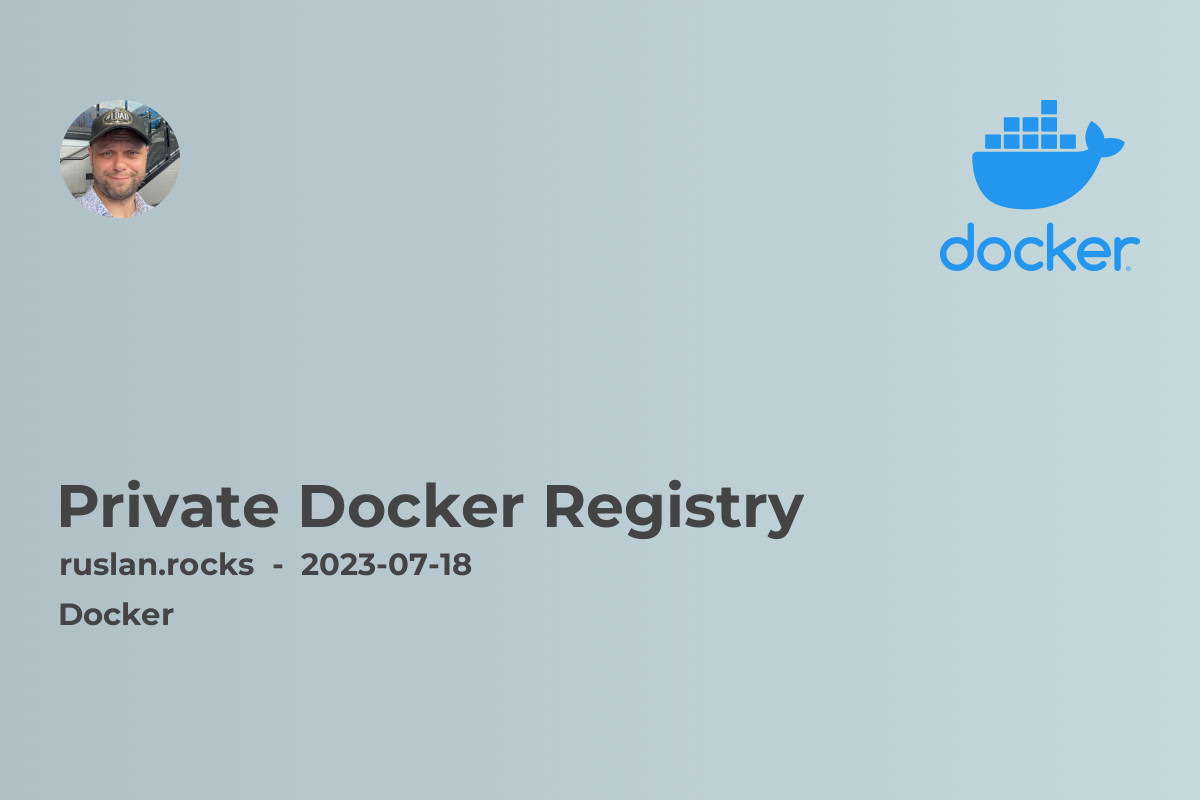- What is a Private Docker Registry?
- Benefits of Using a Private Docker Registry
- Setting Up a Private Docker Registry
- Supporting Articles

Private Docker Registry is a powerful tool that allows you to store and manage your Docker container images securely. Whether you are a software developer working on a large-scale project or a small team looking for a robust container management solution, a private Docker registry can provide the level of control and security you need.
What is a Private Docker Registry?
A private Docker registry is a centralized repository for Docker images that is hosted privately within your organization's infrastructure. It allows you to store, manage, and distribute container images securely, without relying on external public registries. With a private registry, you have complete control over who can access and modify your images, ensuring that your valuable intellectual property remains protected.
Benefits of Using a Private Docker Registry
-
Enhanced Security: By using a private Docker registry, you can ensure that only authorized users within your organization have access to your container images. This prevents unauthorized use and minimizes the risk of security breaches.
-
Improved Performance: When you use a private registry, your container images are hosted within your organization's network infrastructure. This means faster access to images, reducing latency and improving overall performance.
-
Compliance and Governance: Many industries have strict compliance and governance requirements. By using a private Docker registry, you can ensure that your container images meet these requirements and adhere to industry standards.
-
Greater Control: With a private registry, you have complete control over the lifecycle of your container images. You can easily manage access controls, versioning, and distribution, making it easier to collaborate within your organization.
-
Customization: A private Docker registry allows you to customize the registry to meet your specific needs. You can integrate it with your existing infrastructure and tools, making it seamless to incorporate container images into your development and deployment workflows.
Setting Up a Private Docker Registry
Setting up a private Docker registry is relatively straightforward. Here are the basic steps:
-
Install Docker Registry: Install the Docker registry software on a server within your organization's network. This can be done using a simple Docker command or by deploying a pre-built Docker registry image.
-
Configure Authentication: Set up authentication and access controls to ensure that only authorized users can access and modify your container images. This can be done using built-in Docker registry authentication mechanisms or by integrating with your organization's existing authentication system.
-
Secure Communication: Enable secure communication between Docker clients and the private registry using SSL/TLS certificates. This ensures that your container images are transmitted securely over the network.
-
Push and Pull Images: Once your private Docker registry is set up and secured, you can start pushing your container images to the registry and pulling them when needed. This allows you to manage your images in a centralized and secure manner.
Supporting Articles
To further explore the topic of Docker container management and related concepts, check out the following articles:
-
Introduction To Containerization: Understand the basics of containerization and its benefits for modern software development.
-
What Is Docker: Get a comprehensive understanding of Docker and its role in container management.
-
What Is Docker Hub: Learn about Docker's public image registry and its features for easy image discovery and sharing.
-
Docker Vs Kubernetes: Which Container Orchestration Tool Should You Choose?: Compare Docker with Kubernetes to determine the best tool for managing your containerized applications.
-
Advantages And Disadvantages Of Container Orchestration: Explore the pros and cons of container orchestration and its impact on application scalability and management.
By leveraging the power of a private Docker registry, you can ensure the security, control, and performance of your containerized applications. Start exploring the possibilities and take your container management to the next level.
